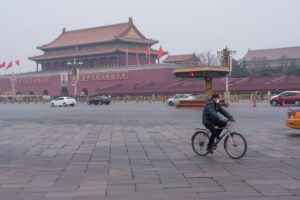Andrew Lister, associate and Laura Thornton, legal director at law firm BDB Pitmans LLP write for Air Quality News about how to prevent air pollution from sky-rocketing as we ease out of lockdown.
The improvement in air quality during lockdown has been widely reported and the benefits have been enjoyed across the UK. However, as restrictions ease this improvement could be quickly lost.
Health concerns and reduced capacity on public transport due to social distancing measures may mean that more of us turn to private cars to travel and a sustained recession could hamper the uptake of electric vehicles by both individuals and businesses who may put off expensive fleet upgrades.
Initial data appear to support these concerns. Although car use dropped to around a third of normal levels at the start of lockdown, by 1 June it was back up to 65%.
Meanwhile, National Rail use was still only at 6%, London Underground at 10%, and bus journeys nationwide at 17%. If these trends continue, the risk is not only that any improvement will be lost but that air pollution will increase above pre-lockdown levels.
But it is not all bad news. The impacts of poor air quality are more widely understood now than ever and public pressure on the Government to improve air quality has never been greater.
Having experienced cleaner air over the last few months, there is the potential for a new momentum to build behind efforts to reduce air pollution. As President Macron said in a recent interview in the Financial Times, as we return to a more normal way of life, ‘people will no longer accept breathing dirty air’.
If he is right, transport infrastructure will be a key area for improvement. The question is what can Government and local authorities do to make sure the new normal is less polluted than the old one?
Clean air zones
Clean air zones are perhaps the most obvious candidate, where polluting vehicles are charged to enter the zone.
Although several major cities are introducing clean air zones in their central areas, currently none of them has come into force and the implementation of many of them has been postponed due to the pandemic.
However, they have the potential to have a dramatic impact on air quality (London’s ultra-low emission zone has reportedly led to a 37% drop in NO2 concentrations within the central zone) and speed up the transition to lower emission vehicles through the provision of local scrappage schemes.
Workplace parking levy (WPL) schemes
As well as introducing the road user charging schemes used to implement clean air zones, the Transport Act 2000 also introduced the ability for councils to set up workplace parking levy schemes. Instead of imposing a charge on individual vehicles, WPL schemes charge employers who provide workplace parking with the aim of encouraging carpooling and use of alternative modes of transport.
Nottingham City Council is currently the only council to have introduced a WPL scheme but the results have been encouraging. As well as tackling congestion, the scheme raises around £9 million a year to fund public transport improvements.
Cycling and walking infrastructure
On 23 May, the Government published new guidance for local authorities encouraging them to reallocate road space for walking and cycling ‘as swiftly as possible’. The guidance suggests the use of Traffic Regulation Orders where necessary to introduce a variety of measures, including pop-up cycle lanes, the widening of footpaths and new pedestrian and cycle zones.
The Government has also introduced regulations giving new powers to local councils to police the use of cycle lanes.
Many authorities have already announced their plans and pop-up cycle lanes are springing up around the UK. The challenge will be ensuring any modal shift achieved can be maintained in the long-term.
Electric vehicles (EVs)
A switch to electric vehicles may not be the answer to reducing particulate matter produced by the deterioration of brakes and tyres, but EVs do have a key role to play in reducing exhaust emissions.
More charging points is often cited as the key to increasing the take-up of electric vehicles but there are other measures which are worth considering, for example, preferential access to bus lanes and the provision of more or cheaper parking for electric vehicles.
The government appears to agree and has recently announced that zero-emission vehicles will soon sport a green flash on their number plate. The hope is that this will make it easier for local authorities to identify zero-emission vehicles ‘for the purposes of locally-led policies and incentives’. What effect this will have remains to be seen but trialling new approaches is surely welcome.
These are just some of the options available but there are many more. In practice, securing a long-term improvement in air quality will require a combination of approaches and a fairly radical rethink of how we travel.
However, as we all adjust to a new way of living and working, there has perhaps never been a better time to make these changes.
Photo Credit – Pixabay

















Although living in London, it could be said we live in a clean air zone: midstream of the Thames and opposite a big park, away from local road traffic pollution. Over this period of reduced air travel, we have noted a startling improvement in both noise levels and air pollution. Planes are at their most inefficient at take off and landing, when they are not more than 3-5,000 feet above us, and we get a greasy film on everything outdoors which is hard to remove and quick to return. We now get cleansing rain – windows and garden furniture no longer need the daily scrub. This indicates the level of pollution inflicted on communities resident under flight paths close to airports. There is no recourse under law – no point even in complaining when aircraft are not currently a statutory nuisance under the Environmental Protection Act 1990 or the Noise Act 1996. If government would, instead of encouraging unrestricted growth of air traffic, imposed checks on it we might be able to keep our cleaner, quieter skies to the benefit of the health and well-being of millions. Not encouraging to hear a City Airport spokesman still talking about expansion plans….